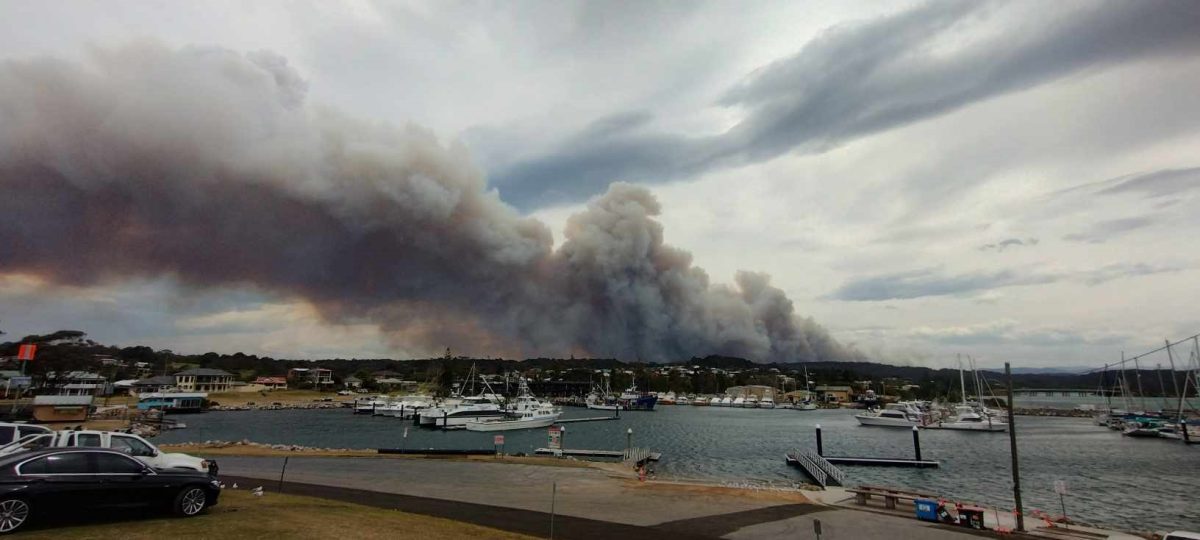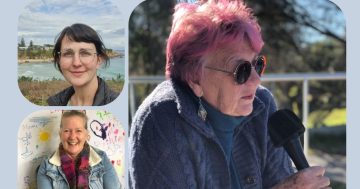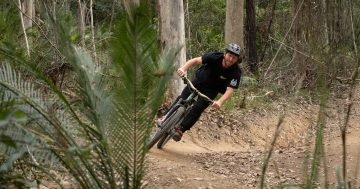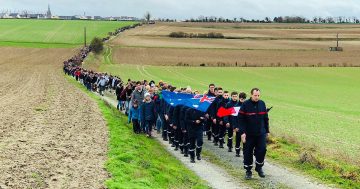
October’s Bega Valley blaze highlighted the dangers of the forecast fire season. Photo: Supplied.
A leadership development program funded by the Federal Government’s Black Summer Bushfire Recovery grants scheme will graduate 19 participants from not-for-profit organisations in the Bega Valley region today (11 October).
Launched in April, the Regenerate Bega Valley leadership development initiative is part of the Foundation for Rural & Regional Renewal’s Investing in Rural Community Futures (IRCF) program, and the program was designed and delivered by the Australian Rural Leadership Foundation (ARLF).
Leaders of local not-for-profit organisations in the Bega Valley were invited to apply for a locally delivered leadership development program, and 24 scholarships were offered.
IRCF was established in bushfire-affected regions of NSW in the wake of the 2019/2020 bushfire season and aims to enable locals to help revive and reinvigorate their communities by building confidence, ability, skills and longer-term sustainability of the region’s not-for-profits.
The IRFC says that, with more communities looking to lead their own recovery efforts, the Regenerate program helps by building leadership capacity via a network of current and emerging community leaders. It says the collaboration of skills, knowledge, expertise and contacts enables them to guide bushfire recovery efforts and respond to future challenges.
Apart from funding from the Federal and NSW governments, other supporters and partners include the Minderoo Foundation, GlobalGiving, the Foundation for Rural and Regional Renewal (FRRR), Global Learning, Southcoast Health and Sustainability Alliance (SHASA), Bega Valley Shire Council, and Cuppacumbalong Homestead.
The programs are described as experiential and challenge-based, immersive, and tailored to rural, regional and remote areas. Participants are encouraged to take themselves away from distractions, and focus on reflection and developing connections and trust with each other.
A program overview says: “Enabling a diverse group of people to get together and find solutions, rather than deferring to an authority for them, is the key to transforming communities into vibrant and sustainable places that people call home.
“Participants took this approach via community initiatives they worked on together, to generate solutions to complex issues in their communities. Shared responsibility helps to build long-term community resilience.”
ARLF chief executive Matt Linnegar said: “When future emergencies or opportunities occur, this network will be invaluable. They won’t be just names and positions; they’ll know and trust each other and be able to work through the challenges in front of them, to build resilience.
“This leadership network will guide and empower communities to address bushfire recovery priorities aimed at rebuilding and growing their local economy.”
With a dangerous bushfire season forecast, and fires already impacting the Bega Valley and other NSW communities, these networks will be important for resilience and recovery in these regions.
Eden Community Access Centre manager and chair of the Eden Recovery and Resilience Alliance, Carina Severs, added: “I’d like people to know what’s available, to know the ‘capability and capacity’ of frontline emergency services, as well as the support services such as Red Cross, CWA have.
“Resilience is about learning skills and being able to look after yourself as best you can, but it is also about showing care for those around you – your neighbours, friends and others.”
Other programs that have been or are being conducted include Regenerate Snowy Valleys, Regenerate Eurobodalla, Regenerate Capital Region, and Regenerate Shoalhaven. While the programs share similar goals of developing community leaders, there are variations in their funding sources, and some unique community needs.
The Bega Valley program graduation will be held on Wednesday, 11 October, from 1:30 pm to 3:30 pm at the Seahorse Inn Hotel & Villas, Boydtown Park Road, Boydtown.










